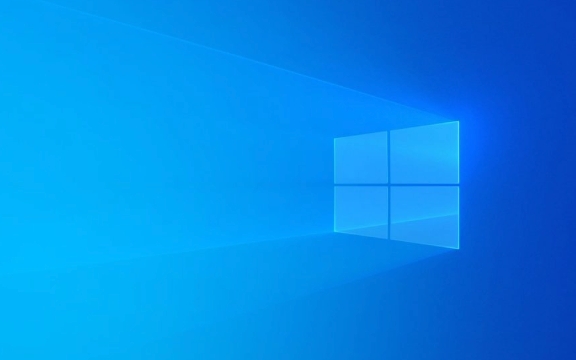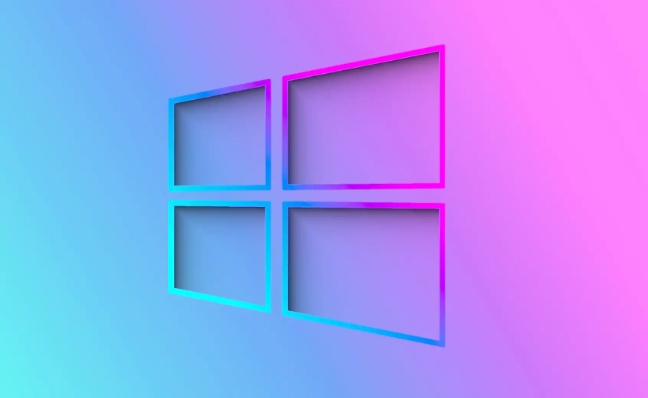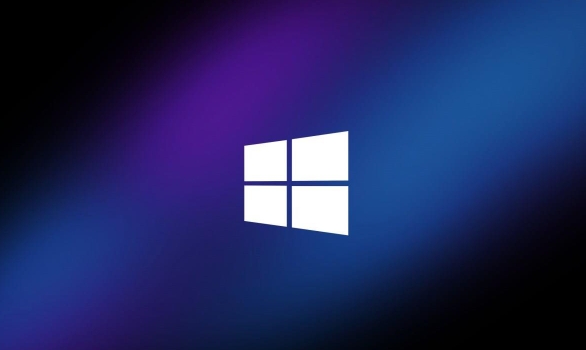What Is Thermal Paste and How to Apply It Correctly?
Jul 23, 2025 am 04:11 AMClean the surface, 2. Apply pea-sized thermal grease to the center of the CPU, 3. Let the pressure of the radiator spread naturally, 4. Install the radiator evenly; correct operation can improve the heat dissipation efficiency, prevent the CPU from overheating, frequency reduction or damage, and extend the hardware life.

Thermal paste—also called thermal compound or CPU paste—is a goopy, heat-conductive material you apply between your CPU (or GPU) and its cooler. Its job? To fill in microscopic gaps and imperfections on both surfaces so heat transfers more efficiently from the chip to the heatsink. Without it, your processor could run hotter than it should, leading to throttling or even damage over time.

You don't need much—just the right amount applied the right way.
Why It Matters
Even if your CPU and cooler look smooth, they're not perfectly flat at a microscopic level. Air pockets trap heat because air is a poor conductor. Thermal paste bridges those gaps, acting like a thermal “glue” that moves heat faster from the CPU to the metal of the cooler.

How to Apply It Correctly (Step-by-Step)
1. Clean First
Remove old paste with isopropyl alcohol (90% or higher) and a lint-free cloth or coffee filter. Both the CPU surface and the cooler base should be completely clean and dry before applying new paste.
2. Choose the Right Amount
Less is more. A pea-sized dot (about 3–5mm wide) in the center of the IHS (Integrated Heat Spreader—the flat metal cap on top of the CPU) is perfect for most modern CPUs. When you tighten the cooler, the pressure spreads it evenly.

Why not more? Too much paste can ooze out the sides, insulate instead of conduct, or even cause electric issues if it gets on the motherboard.
3. Don't Spread It (Usually)
Let the pressure of the cooler do the work. Spreading it manually with a card or finger can introduce air bubbles or uneven layers—especially if you're not precision. The exception: some high-viscosity pastes (like metal-based ones) might benefit from a thin, even spread, but check the manufacturer's instructions.
4. Mount the Cooler Gently but Firmly
Once the cooler is seated and screwed down evenly (following the correct tightening pattern), the paste will spread into a thin, uniform layer—ideally just 0.01–0.05mm thick.
Bonus Tips
- Reapply every 1–3 years if you're doing maintenance or removing the cooler.
- Don't skimp on quality—mid-range pastes like Arctic MX-6, Noctua NT-H1, or Thermal Grizzly Kryonaut work great for most users.
- Avoid cheap pastes with misleading “silver” labels—they're often just filler with poor performance.
Basically, it's not rocket science: clean, dot, press, done.
Get this right, and your CPU stays cooler, quieter, and lasts longer.
The above is the detailed content of What Is Thermal Paste and How to Apply It Correctly?. For more information, please follow other related articles on the PHP Chinese website!

Hot AI Tools

Undress AI Tool
Undress images for free

Undresser.AI Undress
AI-powered app for creating realistic nude photos

AI Clothes Remover
Online AI tool for removing clothes from photos.

Clothoff.io
AI clothes remover

Video Face Swap
Swap faces in any video effortlessly with our completely free AI face swap tool!

Hot Article

Hot Tools

Notepad++7.3.1
Easy-to-use and free code editor

SublimeText3 Chinese version
Chinese version, very easy to use

Zend Studio 13.0.1
Powerful PHP integrated development environment

Dreamweaver CS6
Visual web development tools

SublimeText3 Mac version
God-level code editing software (SublimeText3)
 Google Translate Picture | Translate Text in Images - MiniTool
Jul 12, 2025 am 12:57 AM
Google Translate Picture | Translate Text in Images - MiniTool
Jul 12, 2025 am 12:57 AM
This Google translate picture guide shows you how to translate text from an image. If you are looking for more computer tips and solutions, you can visit php.cn Software official website where you can also find some useful computer tools like php.cn
 How to Install Device Drivers Manually on Windows 11/10? - MiniTool
Jul 06, 2025 am 12:15 AM
How to Install Device Drivers Manually on Windows 11/10? - MiniTool
Jul 06, 2025 am 12:15 AM
If your Windows 11/10 computer doesn’t automatically the latest versions of device drivers, you will need to manually install them. In this post, php.cn Software will show you 3 different methods to manually install drivers on your device.
 How to Amplify/Boost/Increase Microphone Volume Windows 11? - MiniTool
Jul 06, 2025 am 12:27 AM
How to Amplify/Boost/Increase Microphone Volume Windows 11? - MiniTool
Jul 06, 2025 am 12:27 AM
This post delivered by php.cn official web page introduces three methods to improve microphone volume and boost its performance, in Control Panel, via Settings, and by Device Manager. Read the below content to view details.
 what is an operating system
Jul 11, 2025 am 03:16 AM
what is an operating system
Jul 11, 2025 am 03:16 AM
The operating system is the basic software for managing hardware resources, running programs, and providing user interaction interfaces. It coordinates the relationship between hardware and software and is responsible for memory allocation, device scheduling, file management and multitasking. Common systems include Windows (suitable for office and gaming), macOS (Apple devices, suitable for creative work), Linux (open source, suitable for developers), and Android/iOS (mobile device system). The choice of ordinary users depends on the usage scenario, such as software compatibility, security and customization requirements. How to view system information: Use winver command for Windows, click on the machine for macOS, use terminal commands for Linux, and find the phone in settings. The operating system is the underlying tool for daily use,
 Best Ways to Fix Windows 11/10 Control Panel Not Opening!
Jul 08, 2025 am 12:01 AM
Best Ways to Fix Windows 11/10 Control Panel Not Opening!
Jul 08, 2025 am 12:01 AM
Have you ever wanted to adjust computer settings to fix some issues but suffered from Control Panel not opening? There is nothing more frustrating than this app not turning on, stopping you from viewing and changing system settings. In this post, mul
 How to Open and Run dxdiag.exe on Windows 10/11
Jul 06, 2025 am 12:23 AM
How to Open and Run dxdiag.exe on Windows 10/11
Jul 06, 2025 am 12:23 AM
This post includes answers for what is dxdiag, how to run dxdiag in Windows 10/11, DirectX Diagnostic Tool’s main functions, and how to update dxdiag.exe driver. php.cn Software also provides many other computer tips and solutions for users. You can
 What Is Dell Digital Locker? How to Log in and Use It on Dell PC? - MiniTool
Jul 07, 2025 am 12:28 AM
What Is Dell Digital Locker? How to Log in and Use It on Dell PC? - MiniTool
Jul 07, 2025 am 12:28 AM
What is Dell Digital Locker? How to log into Dell Digital Locker? This post from php.cn provides answers. Besides, you can know how to use your Dell Digital Locker to find software products included with your Dell computer.
 How to Open Windows 11 Computer Management Console in 7 Ways? - MiniTool
Jul 09, 2025 am 12:18 AM
How to Open Windows 11 Computer Management Console in 7 Ways? - MiniTool
Jul 09, 2025 am 12:18 AM
This essay summarized by php.cn Software mainly teaches you how to open Windows 11 Computer Management with Windows Search, Quick Link menu, Run dialog, command prompt, PowerShell, File Explorer, Control Panel, as well as a desktop shortcut.






